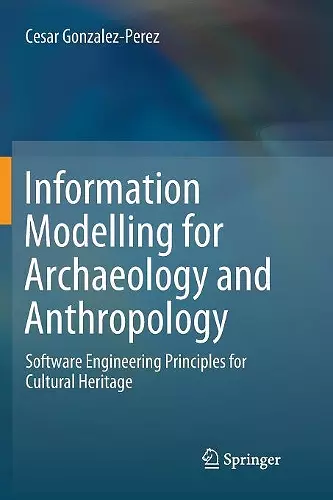Information Modelling for Archaeology and Anthropology
Software Engineering Principles for Cultural Heritage
Format:Paperback
Publisher:Springer International Publishing AG
Published:6th Jun '19
Currently unavailable, and unfortunately no date known when it will be back

This unique text/reference reviews the key principles and techniques in conceptual modelling which are of relevance to specialists in the field of cultural heritage.
Information modelling tasks are a vital aspect of work and study in such disciplines as archaeology, anthropology, history, and architecture. Yet the concepts and methods behind information modelling are rarely covered by the training in cultural heritage-related fields. With the increasing popularity of the digital humanities, and the rapidly growing need to manage large and complex datasets, the importance of information modelling in cultural heritage is greater than ever before. To address this need, this book serves in the place of a course on software engineering, assuming no previous knowledge of the field.
Topics and features:
- Presents a general philosophical introduction to conceptual modelling
- Introduces the basics of conceptual modelling, using the ConML language as an infrastructure
- Reviews advanced modelling techniques relating to issues of vagueness, temporality and subjectivity, in addition to such topics as metainformation and feature redefinition
- Proposes an ontology for cultural heritage supported by the Cultural Heritage Abstract Reference Model (CHARM), to enable the easy construction of conceptual models
- Describes various usage scenarios and applications of cultural heritage modelling, offering practical tips on how to use different techniques to solve real-world problems
Dr. Cesar Gonzalez-Perez is a Staff Scientist at the Institute of Heritage Sciences (Incipit), within the Spanish National Research Council (CSIC), Santiago de Compostela, Spain.
ISBN: 9783319891934
Dimensions: unknown
Weight: 718g
449 pages
Softcover reprint of the original 1st ed. 2018